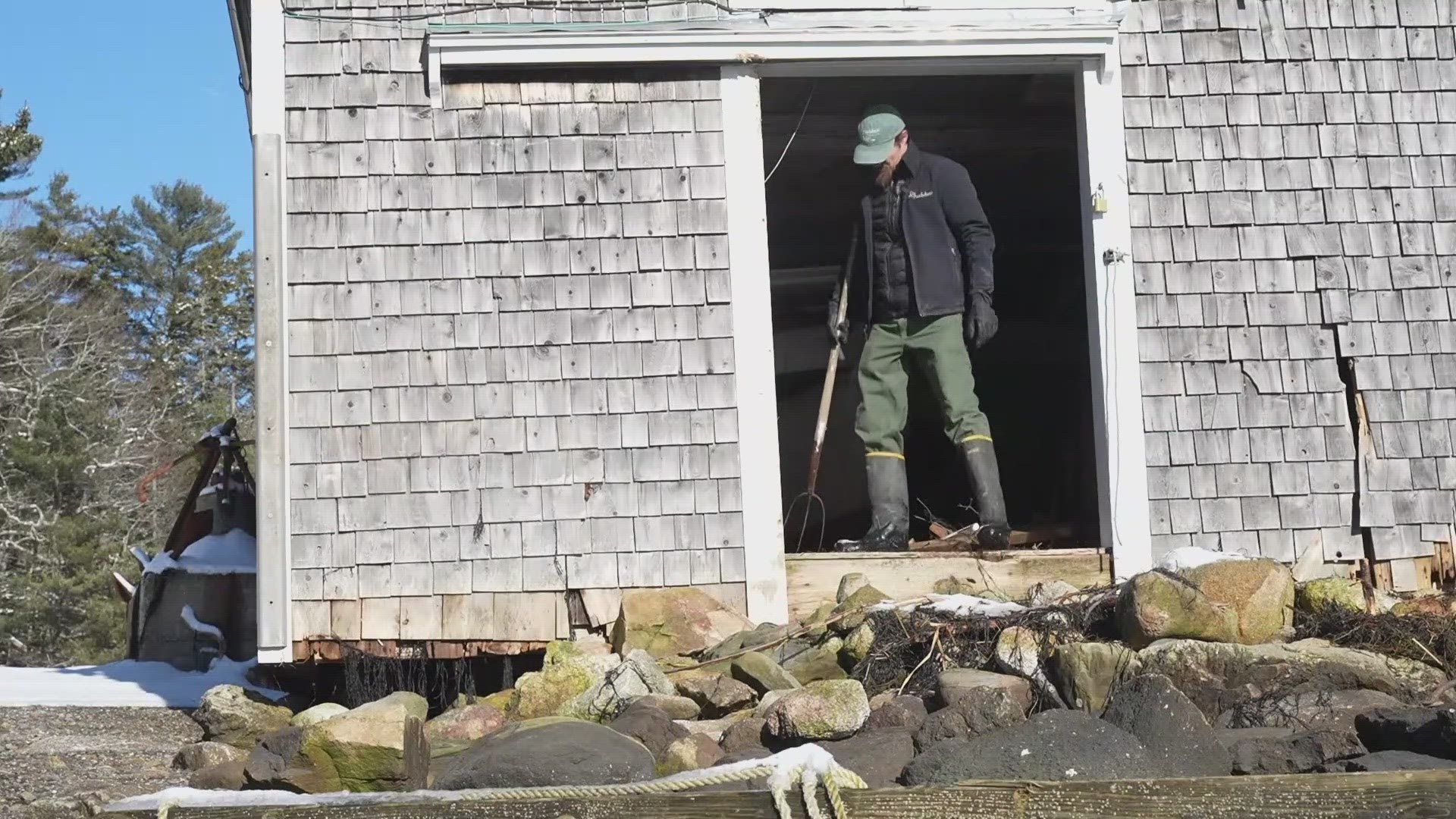BREMEN, Maine — Few coastal communities were untouched by the latest string of historic storms.
One nonprofit that works in the midcoast region was thankful for preparedness, while still licking its wounds along with many others.
NEWS CENTER Maine's Rob Caldwell visited Hog Island in April of 2023, as the National Audubon Society—by way of contractors—was lifting a building at its summer camp located on the island.
Eric Snyder is the society's facilities and operations director for its seabird institute in Bremen, which is within eyesight of Hog Island. He explained the crew lifted the building three feet and had barely moved their machinery back to the mainland in December when a dramatic storm rolled through.
For Snyder, that was an uncomfortable proof of concept.
Last week’s storms lifted the tide to record-breaking levels in nearby Portland. On Hog Island, it came close, but left the building unharmed.
"All of the work and planning that we put into that to lift it up higher, I think, is what really saved it from this storm," Snyder said during a Wednesday interview outside the boat house.
A few hundred yards away on the Bremen side of the bay, however, the angry ocean ripped an Audubon dock off of its pier and threw it on the rocks nearby—well above the usual high tide—and pushed the adjacent boat house off of its foundation.
Staff were already making plans to lift that building as well, but the storm struck first.
"Fall 2024—I had it on my maintenance schedule to be lifting this building and securing it better to the ledge," Snyder explained.
The day before we met Snyder, Marine Resources Commissioner Patrick Keliher spoke while on a joint conference with other state leaders about making waterfronts resilient to increasingly potent storms fueled by climate change.
"This is the new norm," he said, relaying what he said he had been telling Mainers working along Maine's waterfront. "We need to make sure that, as we build back, we're building back higher and stronger."
Keliher added that Democratic Governor Janet Mills called an emergency meeting for the state’s climate council for the end of January.
Higher and stronger is the most obvious solution. But, as evidenced by the working mariners Keliher advises, not every wharf that juts out from Maine's rocky shores is attached to someone’s third home. For the whole coastline to be prepared for future storms, it’s likely going to cost a lot of Mainers a lot of money they may not have.
"It’s a race against an opponent that you don’t know when it’s gonna come," Snyder said. "We know that it is coming, we just don’t know when the next storm is gonna hit."

